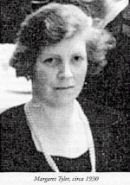Oppression: want of breath: a nocturnal asthma makes him spring up at midnight.
Difficult breathing, with great anguish.
Oppression of breath when walking fast.
The heart-beats are irritable.
Palpitation. Irregular palpitation of the heart, but so violent at night that he imagines he hears it.
Palpitation of heart and tremulous weakness after stool: he has to lie down.
Quick, weak, and irregular pulse.
Loss of strength in the small of the back.
Excessive weakness and exhaustion of the limbs, obliging him to lie down.
Uneasiness in lower limbs, he cannot lie still at night, and had to change the position of his feet all the time or to walk about, to get relief.
Very great restlessness, so that she could not lie quiet a minute.
Restlessness and anxiety. Throwing himself from side to side.
The slightest paroxysm of pain is accompanied with an excessive sinking of strength, obliging him to lie down.
He is so weak that he is scarcely able to walk: feels he will fall over scarcely able to walk across the room without sinking down.
Continued weakness and prostration.
Great weariness after a meal.
Faintness and insensibility.
Faint, anxious, weak, early in the morning.
Burning pains, especially in the inner organs, skin and ulcers.
Eruptions round mouth, burning and painful.
Itching, increased by scratching.
Burning pain in the ulcers–as from glowing coals.
Burning like fire around the ulcer.
Burning itching of body.
Startings when falling asleep in the evening.
After midnight (from 3 o’clock on) she tosses about and sleeps only at times.
Shuddering when walking in the open air.
Shuddering without thirst.
Fever at 2 o’clock in the night.
Typhus-like fever with extreme restlessness.
Burning heat internally.
Feels as if burning up internally.
Feeling of heat with anxiety, after midnight.
Cold, clammy sweat.
QUEER SYMPTOMS
Sees ghosts day and night.
Fear of killing with a knife.
Runs through house at night in search of thieves.
Imagines house full of thieves: so much fear that he jumps out of bed, and hides in wardrobe–or under bed.
Sees thieves in room.
Sees vermin and bugs crawl about his bed from which he wants to escape.
Excessive vertigo: “the bed is tipping over, I shall fall on the floor.”
Brain seems to flap (walking): as if brain moved and beat against the skull.

